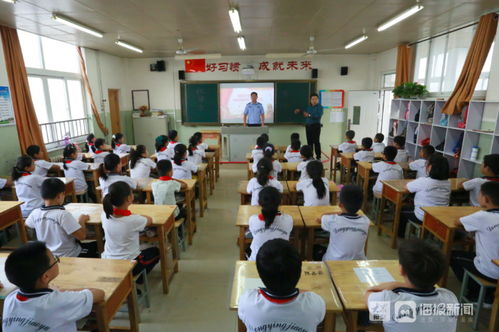您所在的位置:首页 - 科普 - 正文科普
二个月的宝宝早教训练
![]() 之玹
2024-05-05
【科普】
512人已围观
之玹
2024-05-05
【科普】
512人已围观
摘要**Title:EarlyEducationforTwo-Month-OldBabies****Introduction:**Earlyeducationforinfantsiscrucialfort
Title: Early Education for TwoMonthOld Babies
Introduction:
Early education for infants is crucial for their overall development. At two months old, babies are rapidly growing and absorbing information from their environment. Implementing appropriate early education techniques can foster their cognitive, emotional, and physical development. This article explores various strategies and activities tailored for twomonthold infants to stimulate their senses, promote bonding, and lay the foundation for future learning.
Sensory Stimulation:
At two months old, babies are highly responsive to sensory stimuli. Engage their senses through activities such as:
Visual Stimulation:
Use contrasting colors and patterns in toys and mobiles to attract their attention. Spend time making eye contact and smiling at your baby to promote visual development.
Auditory Stimulation:
Play soft music or gentle sounds to soothe and captivate your baby. Singing lullabies and talking to them in soothing tones can also aid in language development.
Tactile Stimulation:
Provide a variety of textures for your baby to explore through soft blankets, plush toys, and gentle massages. Skintoskin contact during cuddling and feeding is essential for bonding and emotional development.Motor Skill Development:
Encourage the development of gross and fine motor skills through ageappropriate activities:
Tummy Time:
Place your baby on their tummy for short periods throughout the day to strengthen neck and upper body muscles. Supervised tummy time sessions also help prevent flat head syndrome and promote motor development.
Gentle Exercises:
Gently move your baby's limbs in circular motions to encourage flexibility and coordination. Allow them to grasp your fingers and objects to improve handeye coordination.
Baby Gym:
Invest in a baby gym or create a DIY version with hanging toys and mirrors to encourage reaching, kicking, and grabbing movements.Social and Emotional Development:
Building strong bonds with caregivers and understanding emotions are vital for a baby's social and emotional wellbeing:
Responsive Caregiving:
Respond promptly to your baby's cues for hunger, discomfort, or affection. Show warmth and affection through cuddling, kissing, and gentle caresses to promote a secure attachment.
Mirror Play:
Use a babysafe mirror to introduce your baby to their reflection. Encourage them to make facial expressions and mimic your actions, fostering selfawareness and social interaction.
Baby Talk:
Engage in frequent conversations with your baby using simple words and exaggerated facial expressions. Respond to their coos and gurgles as if having a conversation, laying the groundwork for language development.Parental Guidance:
Parents play a crucial role in their baby's early education journey. Here are some guiding principles:
Be Present:
Spend quality time interacting with your baby, minimizing distractions such as phones or screens.
Observe and Respond:
Pay attention to your baby's cues and adjust activities accordingly. Every baby is unique, so tailor your approach to suit their needs and preferences.
Stay Informed:
Keep abreast of the latest research and recommendations on infant development and early education practices. Consult pediatricians or early childhood specialists for personalized guidance.Conclusion:
Early education for twomonthold babies lays the foundation for their future learning and development. By stimulating their senses, promoting motor skills, nurturing social and emotional connections, and providing parental guidance, caregivers can create enriching experiences that support their baby's growth and wellbeing. Remember, every interaction with your baby is an opportunity for learning and bonding. Embrace the journey and cherish these precious moments together.
版权声明: 免责声明:本网站部分内容由用户自行上传,若侵犯了您的权益,请联系我们处理,谢谢!联系QQ:2760375052
上一篇: 阜阳师范大学研究生分数查询
下一篇: 托育早教是做什么的
最近发表
- 缅甸多名华人护照被埋,大使馆的回应与我们的思考
- 健身路上的隐形杀手,类固醇增肌的代价
- 柯淳短剧播放量震惊全场,揭秘背后的成功秘诀与未来展望
- 联合国秘书长拒绝了普京的提议,国际合作的挑战与机遇
- 上千位歌迷在场外听刀郎演唱会,音乐无界,情感共鸣的见证
- 张本智和发文祝贺妹妹夺冠,兄妹携手共赴乒乓荣耀之路
- 云南曲靖市会泽县发生4.4级地震,地震应急与科普知识解析
- 拯救山火,韩国消防员盒饭中的米饭与泡菜
- 传奇歌手李国祥离世,音乐界的巨大损失
- 黄金价格的终极目标,探索财富与安全的黄金之路
- 喻恩泰,用眼技征服观众,引发热议的幕后故事
- 中缅合作修复的最高佛塔安然无恙
- 失踪的清华毕业生,罗生门背后的真相
- 救人溺亡外卖员父母70岁,孩子13岁,家庭的无尽哀歌
- 王宝强这段不像演的,从草根到巨星的蜕变之路
- 开放政策为全球经济注入稳定力量
- 防水冲锋衣会致女性不孕?假!
- 蒙牛净利润暴跌98%,挑战与变革之路
- 用户吐槽小米试驾服务,雷军秒道歉,一场危机公关的教科书式操作
- 女孩子名字大全
- 可折叠电动垂直起降飞行器亮相广州,未来出行的革命
- 连接梦想与现实的桥梁
- 商业健康保险药品,倾听业内声音,共筑健康未来
- 温柔的名字
- 50岁陈德容,优雅回应浪姐争议,展现成熟女性的魅力与智慧
- 为您的钱找到合适的安全港
- 甲亢哥学功夫被一棍打出痛苦面具,一场意外的启示
- 你的生活助手——海尔空调遥控器
- 董宇辉报平安,传递正能量,共筑信心桥梁
- 如何挑选适合女孩的英语名字——灵感与选择策略
- 王者荣耀崩了,一场虚拟世界的地震
- 如何为您的咖啡厅取一个吸引人的名字
- 王俊凯这旗一定是非拿不可吗?
- 证监会对浙商证券采取责令改正措施,深度解析与启示
- 阳光保险董事长张维功,构建稳健发展的阳光模式
- 黎巴嫩首都的巨响,一场意外的震撼与反思
- 给宝宝起名的艺术——如何选择最佳的名字
- 美联储再次面临痛苦抉择,如何平衡经济复苏与通胀风险?
- 上海单独二胎新规,如何让家庭更加幸福?
- 王者荣耀回应崩了,一场游戏背后的技术挑战与应对
- 苏宁易购2024全年盈利同比增114.93%,重塑零售格局,引领电商新纪元
- 提升家庭网络体验的魔法——轻松搞定路由器设置,让网速飞起来!
- 东旭集团证券违法拟被罚17亿元,深度解析与启示
- 如何优雅地从保护模式中醒来——手机安全模式解除指南
- 编程世界的魔法之光
- 二手平台现露营装备低价甩卖,是捡漏还是陷阱?
- 让梦想不再遥不可及
- 教师临近退休却遭解聘,教育公平与职业尊严的拷问
- 漂流男孩事件系摆拍?多方回应
- 给女孩起名的艺术,如何用名字塑造未来



